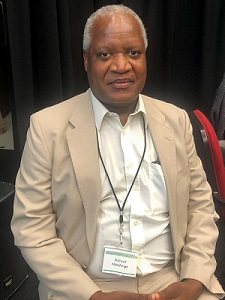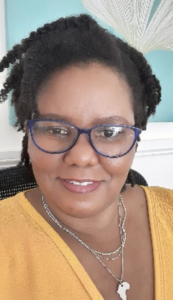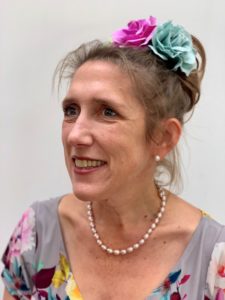Oxford and Oxford Health BRCs have set up a patient and public involvement group. The Diversity in Research Group, a name chosen by its members, aims to make involvement in health research more engaging to diverse communities, especially those not usually involved. Researchers talk to the group about their research and we discuss how it can reach a wider audience.
The members are from communities under-represented in research. Most are from minority ethnic communities and there are also younger adults.
If you are a member of the public or a researcher and want to know more or join the group, please contact Oxford Health BRC enquiries.
Biographies of group members
Kiran Kaur Manku

“I am a research assistant in Neuroscience, Ethics and Society, and co-founder of ‘The 1928 Institute’. I engage in PPI to improve access and effectiveness of emerging research for diverse communities. I am particularly interested in the South Asian diaspora, carers, and young people. I conduct community engagement and provide empirical evidence on the communities’ challenges, wants, and needs.”
Richard Mandunya

“I have a passion for better Health Service delivery through research. It is therefore imperative for me to contribute to this goal for the common good. My years of experience in public participation enable me to contribute to the narrative as a service user. I also was widely involved in campaigns within the social housing sector, the Clinical Commissioning Groups, NHS England, and NHS Health Trusts.
Further international projects I have participated in include the International Learning Collaborative, as well as the GetReal Focus Group under the auspices of International Alliance of Patient Organizations.”
Rosemary Musesengwa

“I have been working in and am passionate about Patient & Public Engagement and Involvement for over 15 years. My main interest is the qualitative evaluation of PPI methods from a patient’s perspective. I am also passionate about co-production of PPI methods with researched communities. I also advocate for diversity and inclusion in mental health research in underserved minority communities.”

Arooj Butt
“I had a heart transplant when I was 11 years old, receiving outstanding pre and post-transplant NHS care. I am a commercial lawyer and have recently become aware of PPI projects. My parents and in-laws are from Pakistani origin and I have often translated for them in medical settings. I see the barriers that people from ethnic minorities, especially the older generation, face as they are often not aware of health research taking place. I am passionate about using my experiences to help others, making participation in health research less taboo, better advertised, and more approachable and inclusive.”

Magdalen Wind-Mozley
“I live in Newbury, and I have two children aged 11 and 14. I’m a school governor, and enthusiastic volunteer at local schools and in my community. I have been lucky enough to have done involvement work around vaccines for 6 years, more recently with the Oxford Biomedical Research Centre, and as a facilitator with the newly formed Diversity in Research Group. I have a background in science, and worked as a forensic scientist (which I genuinely loved; working in both casework and Research & Development).”
Shamsideen Yusuf
“My name is Shamsideen, but people usually refer to me as Shams. I got engaged in PPI work because I noticed how much stigma existed in my community (Black African) to participating in research, largely fuelled by fear brought on through misinformation. My hope is that through collaborative effort, more people of colour become involved in research.
A little about me: I am a mixed race, LGBT+ PhD student, currently in my first year of study. I have lived all over the world and have been brought up in an Orthodox Christian, then a Muslim household. I was fortunate enough to be involved with the Oxford PPIE group from its inception and I’m consistently amazed by the wealth of experience that each group member brings. As a young researcher, I am very grateful to contribute my lived experiences and learn from the experiences of others in this group. I am generally happy to talk through and provide feedback and thoughts on any/all studies.”
Corina Cheeks

“I was introduced to PPI by accident, around five years ago through an online advert seeking participants. I quickly learnt that there are many areas where minority ethnic groups are not adequately represented in research. I have since advocated for transparency and inclusion in research, especially for those underrepresented in our communities. In my role as a Marketing Manager, I have been privy to behavioural research and how our experiences and backgrounds can influence our beliefs and ability to trust medical professionals. I am interested in helping to break down barriers to ensure fair treatment for all, no matter their background.”
Group activities
Barriers to involvement
The group is exploring what factors prevent under-served communities from getting involved in research, and is developing an approach to outreach work with them.
Demographic survey design
The group helped design a survey to collect demographic information from PPIE groups across the BRCs. Input from the group has been valuable in designing questions that are not alienating or feel as if they are “just ticking the diversity box”. Once demographic data is collected, we will have a clearer idea of where to focus outreach work.
Video about Polygenic Risk Scores
The group provided feedback on a video produced by the Genomics Theme to explain PRS (Polygenic Risk Scores) to the general public.
Joining a CT scan PPI group
Several members volunteered to be part of a PPI group for multi-centre study looking at using CT scans to analyse the potential cardiac risk for patients.
Literature review on outreach methods
Four members are undertaking a literature review on outreach methods to increase involvement with under-served communities.
You can read a bit more and watch a short video of participants talking about their involvement here.
Diversity Seminar
During 2022, Corina Cheeks and Shamsideen Knowlton, two members of the Diversity in Research Group participated in a Diversity Seminar with researchers organised by the University of Oxford Nuffield Department of Primary Health Care Sciences. An edited version of the seminar is here.



